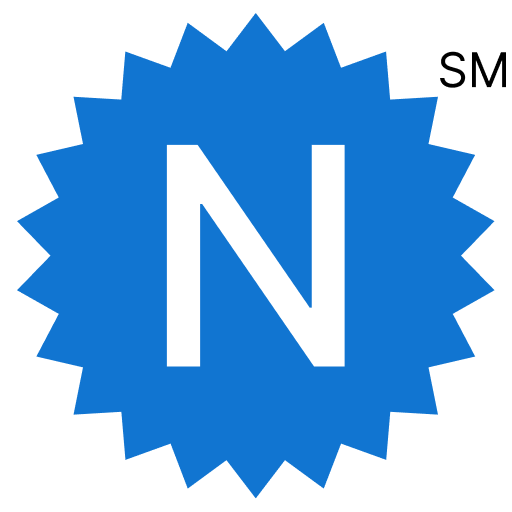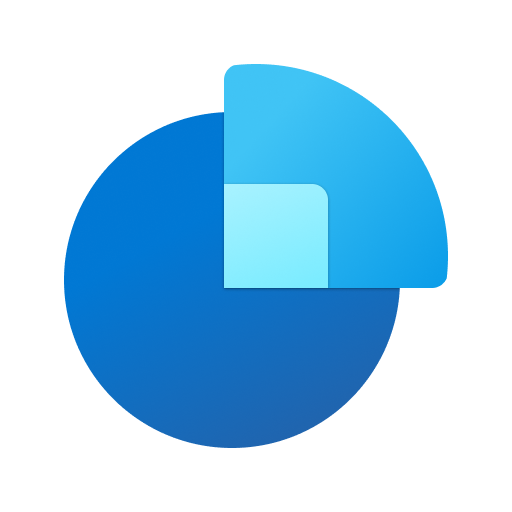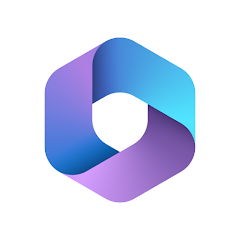Microsoft Azure
About this app
Curious about Microsoft Azure App and how it can benefit you or your business?
In this comprehensive review, we explore what Microsoft Azure App is, how it works, its key features, and who can benefit from using it.
We discuss the pros and cons of Microsoft Azure App, how to get started with it, common use cases, and alternative options in the market.
Discover all you need to know about Microsoft Azure App!
What is Microsoft Azure App?
Microsoft Azure App is a comprehensive cloud computing platform and service provided by Microsoft, tailored for software development and deployment.
With its advanced features, Microsoft Azure App offers developers an intuitive interface that streamlines the process of building and deploying applications. Its scalability allows applications to adjust performance based on demand, ensuring optimal user experience regardless of traffic volume. The seamless integration with other Microsoft services such as Azure Active Directory enhances security measures, providing a robust platform for developers to work with. By facilitating software development and deployment, Microsoft Azure App plays a crucial role in enabling organizations to meet their performance, security, and user experience needs efficiently.
How Does Microsoft Azure App Work?
Microsoft Azure App operates as a cloud computing platform that automates infrastructure provisioning and facilitates software deployment through scalable and reliable services.
When utilizing virtual machines on Microsoft Azure App, users can easily set up and manage their computing resources without the need for physical hardware. The networking capabilities further enhance connectivity between different services and components, allowing for seamless communication within the cloud environment. The automation features of Azure App streamline repetitive tasks such as scaling resources up or down based on demand, ensuring efficient resource utilization and cost-effectiveness. This integrated approach to infrastructure management and deployment processes simplifies the complexities of cloud computing and empowers businesses to focus on innovation and growth.
What Are the Features of Microsoft Azure App?
Microsoft Azure App offers a myriad of features catering to software development needs, including robust scalability, seamless integration, enhanced performance, top-notch security, exceptional user experience, and flexible pricing options.
With its robust scalability, Microsoft Azure App allows businesses to smoothly handle varying workloads, ensuring efficient resource allocation and cost optimization. The seamless integration capabilities of the platform enable easy connectivity with different tools and systems, streamlining workflow processes.
Performance metrics on Azure App are top-notch, providing real-time insights and monitoring for applications. Its strong security protocols protect sensitive data and ensure compliance with industry regulations, offering peace of mind to users. The user experience enhancements make navigation intuitive and efficient, boosting productivity. Azure App provides flexible pricing models to suit the diverse needs and budgets of organizations.
Scalability and Flexibility
Scalability and flexibility are fundamental pillars of Microsoft Azure App, enabling seamless expansion of resources, flexible integration with existing infrastructure, and ensuring reliable performance under varying workloads.
This adaptability allows Azure App to effortlessly scale resources up or down based on demand, ensuring optimal utilization of infrastructure and cost-efficiency. Its ability to integrate with diverse infrastructure environments, such as on-premises data centers or hybrid cloud setups, empowers organizations to leverage existing investments while embracing modern cloud technologies. The reliability of Azure App across different usage scenarios provides peace of mind to users, knowing that their applications will consistently deliver high performance and availability.
Security and Compliance
Security and compliance form the bedrock of Microsoft Azure App, with robust security measures, stringent compliance protocols, detailed documentation, and comprehensive support services ensuring data protection and regulatory adherence.
These security and compliance features are meticulously designed to provide a secure environment for data storage and processing. Microsoft Azure App implements multi-layered security mechanisms, including data encryption, network security controls, and identity management protocols. Compliance standards are continuously monitored and updated to align with industry regulations. The documentation practices ensure transparency and accountability, aiding in audits and compliance checks. The support services offered by Microsoft Azure App further enhance the overall security posture by providing timely assistance and guidance on security best practices.
Integration with Other Microsoft Products
Microsoft Azure App seamlessly integrates with a suite of other Microsoft products, facilitating streamlined deployment processes, continuous updates, and enhanced DevOps practices for optimal software development workflows.
This integration capability allows users to leverage the power of Azure App in combination with tools like Azure DevOps, Azure Monitor, and Azure Automation for end-to-end deployment automation, real-time monitoring, and efficient update management.
By utilizing these interconnected services, teams can establish a cohesive pipeline that automates the deployment of applications, manages updates seamlessly, and fosters collaboration between development and operations teams, embodying the core principles of DevOps within their software development environments.
Cost-Effective Pricing Options
Microsoft Azure App offers a range of cost-effective pricing options suitable for businesses of all sizes, providing enterprise-grade services at competitive rates to optimize operational expenses without compromising on quality.
This cloud computing solution ensures that enterprises can scale their resources according to their needs, giving them the flexibility to choose from various pricing tiers tailored to meet specific requirements. With Microsoft Azure App, businesses can benefit from a pay-as-you-go model, allowing them to pay only for the resources they use, thus minimizing unnecessary costs. The transparent pricing structure enables companies to forecast and manage their budget effectively, making it a reliable and attractive option for organizations looking to leverage the power of cloud services without breaking the bank.
Who Can Benefit from Using Microsoft Azure App?
Microsoft Azure App caters to a broad spectrum of users, including small and medium-sized businesses, enterprises seeking robust deployment solutions, developers requiring advanced analytics capabilities, and organizations in need of scalable resources for diverse projects.
- For small and medium-sized businesses, Microsoft Azure App offers cost-effective solutions tailored to their specific needs, allowing them to efficiently manage their operations and optimize their resources.
- Enterprises benefit from the platform's robust deployment features, ensuring seamless integration within their existing systems while providing enhanced security measures.
- Developers find value in the advanced analytics capabilities of Azure App, allowing them to unlock valuable insights and improve their applications.
- Organizations with varied project demands appreciate the scalability of Azure App, enabling them to adapt resources based on fluctuating workloads and deadlines.
Small and Medium-Sized Businesses
Small and medium-sized businesses stand to gain significantly from Microsoft Azure App's scalable solutions, seamless integration capabilities, vibrant community support, and diverse marketplace offerings that cater to their evolving business needs.
Azure App provides a flexible platform where businesses can easily adjust their resources based on demand, helping them save costs and improve efficiency. The integration features of Azure App allow businesses to connect various tools and systems seamlessly, streamlining operations and enhancing productivity.
By engaging with the Azure community, businesses can access valuable insights, best practices, and support from other users, fostering collaboration and continuous innovation. The Azure marketplace offers a wide range of pre-built solutions and services that businesses can leverage to quickly enhance their operations, stay competitive, and drive growth.
Enterprises
Enterprises can leverage Microsoft Azure App's hybrid cloud solutions, robust scalability options, industry certifications, and comprehensive training programs to drive innovation, ensure compliance, and optimize operational efficiency within their organizational framework.
With the hybrid cloud capabilities of Microsoft Azure App, businesses can seamlessly integrate on-premises infrastructure with cloud services, allowing for increased flexibility and efficiency. The range of certifications offered ensures that enterprises meet industry standards and regulations, boosting credibility and trust. Through specialized training resources, employees can enhance their skills and stay updated with the latest technology trends, enabling them to innovate and adapt to changing business landscapes effectively.
Developers
Developers can harness the power of Microsoft Azure App's advanced developer tools, AI services, machine learning capabilities, and seamless integration options to build innovative solutions, streamline workflows, and deploy cutting-edge applications with ease.
By leveraging the comprehensive suite of developer-centric tools offered by Microsoft Azure App, developers can expedite the development process, collaborate seamlessly, and access a wide range of resources to enhance their productivity.
The AI and machine learning services integrated within the platform allow developers to incorporate intelligent functionalities into their applications, enabling them to create smarter and more responsive solutions.
The integrative features of Microsoft Azure App facilitate seamless deployment across various environments, ensuring that applications are efficiently deployed and readily accessible to end-users.
What Are the Pros and Cons of Microsoft Azure App?
Microsoft Azure App boasts a feedback loop for continuous improvement, intuitive user interface for enhanced usability, customization options to suit diverse needs, and unwavering reliability for critical workloads.
The feedback mechanisms in Microsoft Azure App allow users to provide real-time input on their experience, enabling developers to make timely adjustments. The user interface enhancements contribute to a seamless navigation experience, simplifying complex tasks for users.
The customization flexibility empowers organizations to tailor the app to their specific requirements, fostering a more personalized user experience. While the reliability assurances offered by Microsoft Azure App are commendable, some users have reported occasional system glitches and downtime, highlighting the need for continuous monitoring and updates.
Pros:
The advantages of Microsoft Azure App include enhanced productivity through efficient workflows, fostering innovation with cutting-edge tools, robust monitoring capabilities for performance optimization, and a multitude of success stories showcasing the platform's impact.
Businesses leveraging Microsoft Azure App enjoy a significant boost in productivity, thanks to streamlined processes that save time and resources. The platform's innovative features empower teams to explore new ideas and bring them to life through advanced development tools and technologies. With comprehensive monitoring capabilities, users can closely track performance metrics, identify areas for improvement, and make informed decisions to enhance efficiency.
Numerous success stories highlight how organizations have achieved remarkable growth and success by harnessing the power of Microsoft Azure App.
Cons:
While Microsoft Azure App offers extensive capabilities, some drawbacks include complex pricing models, occasional user experience challenges, limited troubleshooting resources, and the necessity for adherence to best practices for optimal utilization.
- The complex pricing models of Microsoft Azure App can be a hindrance for users trying to understand their usage costs, budget effectively, and predict future expenditure accurately.
- Occasional user experience challenges may arise, such as interface lag or difficulties navigating certain features, which can impact productivity and overall satisfaction.
- Troubleshooting can also be limited, making it challenging to address and fix technical issues efficiently. Therefore, following best practices is crucial to mitigate these drawbacks and ensure efficient usage of the platform.
How to Get Started with Microsoft Azure App?
Embarking on the Microsoft Azure App journey involves accessing comprehensive documentation, engaging with interactive tutorials, participating in informative workshops, and attending enlightening events to kickstart your cloud computing experience.
Starting with documentation access, you can delve into detailed resources that provide insights into Azure's functionalities, features, and best practices. By thoroughly going through the documentation, you will build a solid foundation for your Azure journey.
Moving on to interactive tutorials, these hands-on sessions offer practical guidance on setting up, configuring, and optimizing Azure services. Workshops provide a collaborative environment where you can interact with experts and peers, gaining valuable tips and tricks. Participating in events offers networking opportunities and the chance to stay updated with the latest trends in cloud computing.
What Are Some Common Use Cases for Microsoft Azure App?
Common use cases of Microsoft Azure App encompass diverse solutions ranging from data management to AI implementation, supported by detailed case studies that showcase successful migration stories to the cloud platform.
- One prevalent scenario where Microsoft Azure App excels is in providing robust data management solutions, allowing businesses to securely store, analyze, and harness valuable insights from their vast datasets. The platform's seamless integration with advanced AI services enables organizations to effortlessly deploy machine learning models and cognitive services, paving the way for enhanced decision-making and innovative solutions.
- Many success stories of companies achieving significant cost savings and operational efficiency through migration to Microsoft Azure App are highlighted in detailed case studies, underlining the platform's prowess in facilitating smooth and successful transitions to the cloud environment.
Web Applications
Web applications find a perfect ally in Microsoft Azure App, leveraging its seamless deployment options, scalable infrastructure, and informative tutorials to create robust online platforms with ease.
Whether you are a seasoned developer or just starting out, Microsoft Azure App provides a user-friendly interface and comprehensive resources to simplify the process of building a web app.
The deployment efficiency offered by Azure App streamlines the launch of applications, allowing developers to focus more on enhancing functionality rather than dealing with technical complexities.
The scalability features ensure that your web application can seamlessly adapt to fluctuating demands, ensuring optimal performance at all times.
With a plethora of tutorials available, developers can easily access guidance and best practices for building resilient and dynamic online platforms that stand out in today's competitive digital landscape.
Mobile Applications
Mobile application development thrives on Microsoft Azure App's capabilities, with advanced analytics tools, AI service integration, and informative workshops enhancing the creation of innovative and data-driven mobile solutions.
- The analytics support provided by Microsoft Azure App allows developers to gain valuable insights into user behavior, enabling them to make data-driven decisions for optimizing the app's performance and user experience.
- The seamless integration of AI services empowers developers to incorporate intelligent features such as machine learning algorithms, natural language processing, and computer vision functionalities into their mobile apps, making them more interactive and engaging for users.
- The workshops offered by Microsoft Azure App equip developers with the latest tools and techniques to stay at the forefront of mobile app development trends, fostering the creation of cutting-edge and impactful applications.
Data Storage and Management
Data storage and management tasks are streamlined on Microsoft Azure App, benefiting from secure storage options, robust infrastructure support, and comprehensive monitoring tools to ensure data integrity and operational efficiency.
These features make Microsoft Azure App a highly reliable platform for businesses looking to safely store and manage their data. With its secure storage solutions, users can confidently store sensitive information without worrying about data breaches. The robust infrastructure of the platform ensures that data is stored and managed efficiently, supporting high volumes of information without compromising performance. The monitoring functionalities help businesses in detecting any anomalies or potential threats to their data, enabling proactive measures to maintain data integrity and optimize operational processes.
What Are Some Alternatives to Microsoft Azure App?
While Microsoft Azure App excels in various aspects, alternatives like AWS, Google Cloud, and IBM Cloud offer competitive cloud computing solutions with their unique features and service offerings.
- For instance, AWS is known for its extensive global network infrastructure and a wide range of services, making it a popular choice for enterprises with diverse needs.
- On the other hand, Google Cloud is praised for its cutting-edge technologies and strong focus on data analytics and machine learning capabilities.
- IBM Cloud, with its longstanding reputation in the enterprise market, emphasizes security and compliance, attracting businesses with stringent regulatory requirements.
Each of these cloud providers has its strengths, catering to different use cases and preferences among users.
AWS
As a formidable competitor to Microsoft Azure App, AWS presents a robust marketplace environment, extensive partnership opportunities, and industry-leading certifications that cater to diverse business and development needs.
The AWS marketplace is characterized by a wide array of software solutions and services offered by various vendors, providing customers with a plethora of choices to meet their specific requirements.
In terms of partnerships, AWS has developed a comprehensive program that enables businesses to collaborate with technology providers, system integrators, and consultants to enhance their solutions.
AWS offers a range of certifications such as AWS Certified Solutions Architect, AWS Certified Developer, and AWS Certified SysOps Administrator, empowering professionals to validate their expertise and proficiency in using AWS services effectively.
Google Cloud
Google Cloud stands as a notable option in the cloud computing arena, offering automation tools, diverse resources, and informative tutorials that empower users to leverage cloud services efficiently and effectively.
With Google Cloud's automation features, users can streamline repetitive tasks, saving time and reducing the risk of errors. Its rich array of resources caters to a variety of needs, from storage solutions to machine learning tools. The abundance of tutorials available makes it easy for both beginners and experienced users to navigate the platform, learn new skills, and troubleshoot any issues that may arise. By tapping into these offerings, individuals and businesses can unlock the full potential of cloud computing for their operations.
IBM Cloud
IBM Cloud emerges as a strong contender in the cloud services realm, offering hybrid cloud solutions, adherence to compliance standards, and comprehensive training programs to meet enterprise requirements and ensure regulatory alignment.
With its hybrid cloud offerings, IBM Cloud provides businesses with the flexibility to seamlessly integrate their on-premises infrastructure with cloud-based solutions, creating a robust and scalable environment.
The platform's compliance-centric approach ensures that sensitive data is handled according to industry regulations, giving organizations peace of mind when it comes to security and governance.
IBM Cloud's educational resources are tailored specifically for enterprise needs, equipping users with the knowledge and skills required to navigate complex regulatory landscapes and make informed decisions when it comes to their cloud strategy.
Related Apps
-
Microsoft AzureGETBusiness
-
Dynamics 365 SalesGETBusiness
-
PrinterShareGETBusiness


















